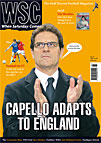 Clubs ruined by debt are finding themselves in a continuous cycle of money problems, writes Tom Davies
Clubs ruined by debt are finding themselves in a continuous cycle of money problems, writes Tom Davies
One of the more depressing features of recent years’ club crises is just how recurrent they are: a threat is averted temporarily, only to resurface a couple of years later, with underlying problems unsolved. At few places is this more evident than at Rotherham United, who last month entered administration for the second time in less than two years, as a three-year decline, which has seen ownership of the club change hands twice and the ground once, has again pushed the Millers to the brink. The League Two club owe what is thought to be “several hundred thousand pounds” to the tax authorities and, needing funds to pay players and rent their ground from octogenarian former chairman Ken Booth, are in another fight for survival.
The bare facts are that the consortium headed by local businessman Dennis Coleman that took over the club in early 2006 (taking over from the Millers 05 group, who themselves assumed control from Booth only a little more than a year earlier) has been unable to find the investment to overcome losses. The fact that Rotherham no longer own Millmoor, which remained in Booth’s hands when he relinquished control of the club, has made the task of attracting investment that much more onerous, as have the almost fourfold rent increases imposed by Booth – to around £16,000 a month – when the club exited its previous administration through a Company Voluntary Arrangement.
Booth and his family are naturally blamed by many fans for the crisis, even if he did routinely underwrite losses during his long tenure as chairman, but the Millers are also grappling with the consequences of overspending during their four-year stint in the Championship earlier this decade. The inability of smaller clubs to compete in the Premier League has become such a commonplace complaint as to have become almost a cliche; the worry now is that chasing even the Championship dream is proving just as perilous for so many clubs.
To keep funding levels adequate to prolong administration, Rotherham’s crowds need to exceed 4,000 for the remaining games of a season now rendered meaningless by the ten-point administration penalty that has torpedoed their promotion hopes, while the administrator and club sound out potential new owners. Two “seriously interested” parties have apparently come forward, including one fronted by former Carlisle manager Roddy Collins in conjunction with Irish property developer Anthony McMullen, but they have also been linked with similarly stricken Gretna and Bournemouth, so fans remain cautious. Rotherham’s crisis takes the total number of points deducted from Football League teams this season for administration or financial irregularities to 45 points, the most since the sanction was introduced five years ago.
Ten points have now gone in the Conference, with Halifax Town’s administration putting them in severe danger of relegation below the fifth tier for the first time. Owing a total of £1.1 million, Town called in the administrators last month after former chairman Ray Moreland issued a winding-up order for the relatively small sum of £7,944.86 that he was owed in a loan. This in turn sparked claims from other creditors, including current and past directors and Revenue & Customs, who are owed around £250,000.
Halifax have effectively been run this season by a consortium headed by David Bosomworth and Bobby Ham, which was looking to build up a big enough stake to take full control and restructure the club, but had only acquired around 62 per cent due to what is described as wrangling over “trading issues”. The consortium is still the favourite to take control in the event of the club exiting administration and being reconstituted, on the proviso that a CVA had been arranged. Although the stewardship of Bosomworth’s consortium has not met with wholehearted approval – admission prices have increased and the club badge was altered – more anger is directed at Moreland, who had in the past made great play of being a big fan, but who appears to have used the arrival of new investors to further imperil the club.
If these crises illustrate modern football’s precarious economics, discontent rankles in the upper reaches, too. A general alienation with the inaccessibility of top-level football has led a group of Liverpool fans to become the latest supporters’ group to set up their own breakaway club. Loosely following the same template as at FC United of Manchester, AFC Liverpool hope to have a team in division two of the Vodkat League – aka the North West Counties – next season, based at a venue yet to be revealed in the Merseyside area. Around 300 members have already signed up.
Club co-ordinator Alun Parry insists that AFCL is born more of a general disillusionment with high prices than as a response to the recent protests against Liverpool’s American owners, Tom Hicks and George Gillett. “We are actually very defensive of Liverpool Football Club,” Parry says. “They’re one of the better ones in the top flight in terms of affordability. They could’ve gone the route of Chelsea or Tottenham, yet it’s still too much. This isn’t a response to a short-term issue; it’s a long-term one, about preserving heritage, the Saturday matchday experience, passing down the special characteristics of each team’s supporters.”
From WSC 255 May 2008